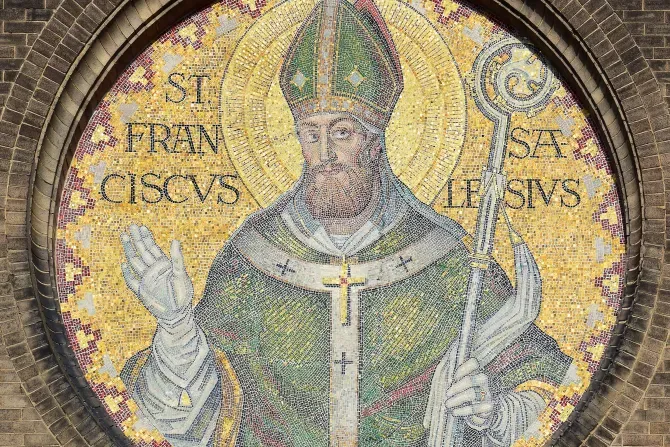Despite the initiative of his friends, Francis, as soon as he could, presented himself to the pontiff as a volunteer to go to the region of Chablais (Savoy), where Calvinism had become dominant and Catholics were harassed all the time.
The saint began to write and publish his homilies, which he put together in pamphlet form. In them he expounded the doctrine of the Church and refuted the Calvinist positions. These writings would later form part of his famous text called “Controversies.”
However, what people admired most about Francis was the patience with which the saint endured the difficulties and pains that his office caused him.
The pope confirmed Francis as coadjutor of Geneva and the future saint returned to his diocese to work with redoubled commitment. Then, on the death of the bishop, Francis succeeded him and took up residence in Annecy.
During this period, Francis had as a disciple named Jane de Chantal, with whom he founded the Congregation of the Visitation in 1610. The spiritual instruction and direction he gave to de Chantal, who was also later canonized a saint, became his famous “Introduction to the Devout Life,” his best-known work.
(Story continues below)
In 1622, the duke of Savoy invited Francis to join him in Avignon. The bishop accepted the invitation, concerned for the welfare of the French part of his diocese. The trip, however, was risky because of the harsh winter and his declining health. After meeting with the duke, Francis began his return journey.
That journey would be his last.
He stopped in Lyon and stayed in the gardener’s cottage of the Visitation convent. From there he attended to the nuns spiritually for a whole month. It was during this time that he spoke and wrote about humility.
He continued his journey preaching and administering the sacraments until his strength left him. Francis de Sales died at the age of 56, on Dec. 28, 1622.
Legacy
One day after the bishop’s death, the entire city of Lyon paraded in front of the humble house where he had died. Known for his holiness, his coffin was opened in 1632 and his body was in good condition and looked like he was in a peaceful sleep.
Francis de Sales was canonized a saint in 1665. In 1878 Pope Pius IX declared him a doctor of the Church. Not long after that, John Bosco would make him the patron of his newly founded congregation — the Pious Society of St. Francis de Sales — and make Francis a model for the service of his spiritual sons, the “Salesians.”








